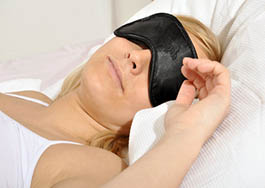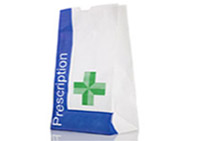Jet Lag

Jet Lag treatment service
Why use NationWide Pharmacies?
![]() FREE Delivery
FREE Delivery
![]() GMC Registered UK Doctors
GMC Registered UK Doctors
![]() MHRA & GPhC Registered
MHRA & GPhC Registered
![]() CQC Regulated & Approved with 'Good' rating
CQC Regulated & Approved with 'Good' rating
![]() 5* Trust Pilot rating
5* Trust Pilot rating
Long distance trips, travelling across different time zones, can lead to experiencing Jet Lag making you overly tired as your body clock is out of sync and needs to realign up with the time difference.
Important: Regulations prohibit us from naming the prescription medication we can provide for jet lag as it is only licensed in the UK as a short term treatment for insomnia, but is not prescribed for jet lag. It is, however, used globally to treat jet lag.
View our Jet Lag treatment prices
What is jet lag?
The body has a natural 24-hour clock, known as the circadian rhythm, which is disciplined by your bodies biological clock. This natural rhythm can be knocked out of sync due to traveling across another timezone and thus resulting in the feeling of jet lag.
Your body is accustomed to a typical routine of day and night patterns. However, when you migrate to a different time zone this pattern is disturbed.
The body produces a natural hormone called melatonin, the amount of which fluctuates in at different times during each 24-hour period. Melatonin's function is to conduct sleep and wakefulness. Boosting the volume of this hormone in the body before going to sleep at night reduces the symptoms of jet lag and helps the body settle back to its natural cardiac rhythm. Treatment to boost levels is utilised by those who travel long distances.
When a mode of transport such as a flight or ship enters a different timezone, the body clock can require a couple of dates to acclimatise to the new time zone. People often report struggling to get to sleep at night and do not feel rested come the following day. They may want to consume food at times they are not used to and have less energy than normal during the day.
Jet lag can be unpleasant at any age. It tends to affect older people more than young. Studies on the use of the natural hormone for the treatment of jet lag.
Start your online consultation now
Air travel makes it possible to cross several different time zones in just a few hours. Due to travelling so quickly, your body has to catch up and re-establish its circadian rhythm. It takes time for your body to adjust to new times of light, darkness and eating. It may also have to adjust to differences in temperature.
| Melatonin | |
|---|---|
 |
Melatonin is a hormone produced naturally by the body primarily during hours of darkness, and is thought to regulate sleep patterns and other body processes that depend on the time of day. For this reason, it has sometimes been used to promote sleep and reduce the unpleasant effects of jet lag, following long-haul flights. This product is manufactured to pharmaceutical standards. This product is not a food supplement. A free private prescription will be issued for this product following an online consultation with our Doctor |
Causes of Jet Lag
The primary cause of jet lag is through long distance travel, where a person crosses multiple time zones, which upsets the bodies natural rhythm causing your body clock to be out of sync. Jet lag will normally be worse if you are traveling east as the body will find it easier to adapt to a longer day (traveling west) than a shorter day. Often the problem can be exacerbated by the lower pressure within airplanes which can cause lower amounts of oxygen to be absorbed by your blood making you feel tired and dehydrated.
Available Treatment
There are several things you can do to minimise the effect of jet lag.
Melatonin
Melatonin is a hormone produced naturally by your body to help regulate sleep. Your body clock is controlled by natural daylight and by the melatonin released in your body. Melatonin is produced when it gets dark to prepare your body for sleep. Your body stops producing the hormone when it gets light to help you wake up.
Many jet lag remedies contain melatonin to help raise your natural melatonin levels to help you sleep at night when your body is finding it difficult to adapt to a new time zone.
Currently, there is not enough evidence to say whether melatonin supplements are generally effective. Some people find them helpful but they are not currently licensed to treat the prevention of jet lag in the UK.
Sleeping Pills
Sleeping pills are another method of inducing sleep when your body clock is out of sync. However, sleeping pills can be addictive and can have side-effects including runny nose, diarrhoea, and headaches. NationWide Pharmacies do not prescribe sleeping pills on private prescription under any circumstances.
Preventing Jet Lag
You cannot prevent jet lag, however, you can take steps to minimise its impact before you travel and during your flight.
Before you travel
- Change your sleep routine before you travel. If you are travelling east, go to bed an hour earlier than your usual time; if you are travelling west, go to bed an hour later. Try to adapt your sleeping routine with your destination in mind.
- Get enough sleep before you travel. Flying when you are tired can make jet lag worse.
- Keep calm and relaxed. Airports can often be stressful places; keep calm to avoid getting stressed, as stress can make jet lag worse.
- Check in online. This can help reduce stress and will enable you to relax as soon as you arrive at the airport.
During the flight
- Drink plenty of fluids. Ensure you are well hydrated before, during and after your flight.
- Rest during the flight. Take short naps.
- Limit your caffeine consumption. Avoid drinking too many drinks that contain caffeine, such as coffee, tea and cola, and avoid drinking them within a few hours of planned sleep.
- Avoid alcohol. Eat light meals and avoid drinking alcohol because it can make the symptoms of jet lag worse.
- Keep active. When flying long distances, take regular walks around the cabin and stretch your arms and legs while you are sitting down; this will also help reduce your risk of developing a potentially serious condition called deep vein thrombosis (DVT).
- Change your watch to match the time of your new destination. This will help you to adjust to your new time zone more quickly.
Try to get some sleep if it is night time when you arrive at your destination. You may find using ear plugs and an eye mask is useful.


 TRUST
TRUST